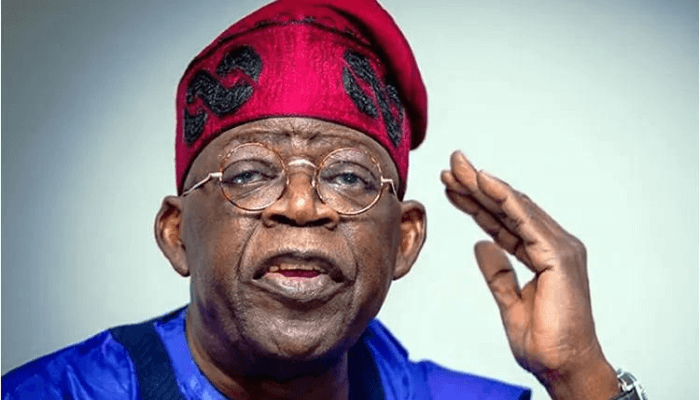
The Tinubu Stakeholders Forum (TSF) has welcomed Nigeria’s strong trade performance in the second quarter of 2025, following new data from the National Bureau of Statistics (NBS) showing that the country recorded a trade surplus of ₦7.46 trillion
In a statement signed by its Chairman, Ahmad Sajoh, and Secretary, Danjuma Sada, the Forum noted that the new figure represents a 44.3% increase from ₦5.17 trillion in the first quarter.
The statement said: “This significant rise in trade balance is one of the clearest signs yet that President Bola Tinubu’s reforms are reshaping the Nigerian economy for growth, stability, and diversification.
”The surplus reflects an important shift in Nigeria’s trade structure. While crude oil remains the single largest export commodity, the steady growth of non-oil exports shows that the economy is moving away from overdependence on a single resource.
”The NBS data showed that manufactured goods surged to ₦803.8 billion in the second quarter, representing a 173% increase from Q1, while solid minerals expanded by 31%, with cement clinkers and mineral substances leading the charge. Petroleum by-products beyond crude oil also recorded stronger demand.
”Together, these figures point to a slow but steady rebalancing of the economy, where multiple sectors are beginning to earn foreign exchange.
”In 2021, the country posted a half-year trade deficit of about ₦1.56 trillion, and between 2020 and 2023, surpluses remained weak and inconsistent, averaging only a few hundred billion naira.
”However, the picture has changed dramatically since 2024, when the half-year trade balance surged to over ₦8 trillion, followed by an even stronger ₦12.64 trillion surplus in the first half of 2025.
”This turnaround demonstrates that Nigeria has moved from fragile and unstable trade positions to a period of robust surplus, driven by reforms that are expanding the export base and strengthening the economy.
”By our reckoning, the devaluation of the naira has improved Nigeria’s external competitiveness and created new opportunities for local manufacturers and agro-processors to expand into regional and global markets.”
TSF noted that the current trade surplus reflects the direct outcome of president Tinubu’s bold foreign exchange reforms, which not only liberalised the naira but also dismantled corruption and rent-seeking practices in the FX sector.
”By eliminating distortions and restoring transparency, the reforms have created a level playing field where producers now find it more profitable to export, while global buyers are increasingly receptive to Nigerian goods,” it added.
TSF further observed that the growth in trade surplus has strong implications for Nigeria’s participation in the African Continental Free Trade Area (AfCFTA).
”With markets across Africa gradually opening under AfCFTA protocols, Nigeria is now better positioned to serve as a hub for intra-African trade.
”Rising exports in manufactured goods, value-added petroleum products, and solid minerals will enable Nigeria to reduce its trade deficits with some African partners, expand market share in key economies, and stimulate job creation at home.
”We are confident that Nigeria will record even higher growth in succeeding quarters due to government initiatives and reforms already being implemented.
”These include the “Nigeria First” Procurement Policy designed to boost local manufacturing, the rollout of the National Single Window (NSW) initiative to ease trade processes, and targeted incentives and exemptions for manufacturers under the new Nigeria Tax Act.
”These measures will strengthen the export base and encourage import substitution, expand production capacity, and create a more competitive industrial sector.
”We are of the view that strategic infrastructure investments, including the Lagos-Calabar Super Highway and the Sokoto-Badagry Super Highway, will unlock vital trade corridors, reduce logistics costs, and expand market access for Nigerian businesses.
”At the same time, steady improvements in power supply are easing production constraints, allowing manufacturers, agro-processors, and service providers to lower operating costs, boost output, and compete more effectively in both regional and global markets,” the statement noted.


